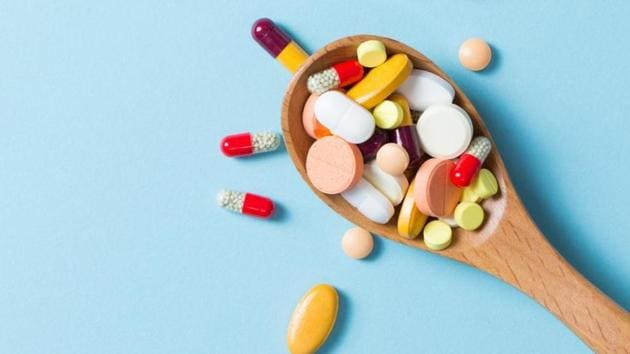Multivitamins and aspirin can make you antibiotic resistant, lead to incorrect lab results
Over-the-counter (OTC) drugs such as multivitamins, multiminerals, and aspirin could make you antibiotic resistant and cause other health issues, as well as affect lab test results leading to incorrect diagnoses.
Do you have the habit of popping over-the-counter (OTC) drugs such as multivitamins, multiminerals, and aspirin? Besides making you antibiotic resistant and causing other health issues, it may also affect lab test results, leading to possibly incorrect diagnoses, researchers have warned. The study showed that dietary supplements and OTC drugs were more frequently used by middle-aged patients, especially women.

These compounds, if consumed shortly before blood sampling, may cause changes in lab test results, thus leading to interpretation difficulties and possibly incorrect diagnoses, the researchers noted. Moreover, the patients were also reluctant or did not feel the need to disclose the use of these drugs to medical or laboratory staff.
“We hope that our survey helps to raise awareness about the need to educate patients about the potential effect of OTC drugs and dietary supplements on lab test results,” said Ana-Maria Simundic, Professor at the Sveti Duh Clinical Hospital in Croatia. “We would encourage clinicians and lab staff to engage more with their patients and ask them to direct questions about the use of various self-prescribed products,” she added.
For the study, published in the journal Clinical Chemistry and Laboratory Medicine, the team surveyed 18 European countries and anonymously surveyed 200 outpatients in each country. In total, 68% of patients were regularly taking at least one OTC drug or dietary supplement. Vitamins (38%), minerals (34%), cranberry juice (20%), acetylsalicylic acid (ASA) (17%) and omega fatty acids (17%) were the most commonly used in the study.
The researchers stressed on the need of a multifaceted approach to draw attention to the issue using educational interventions which target both healthcare professionals and patients.
Follow @htlifeandstyle for more
Catch your daily dose of Fashion, Taylor Swift, Health, Festivals, Travel, Relationship, Recipe and all the other Latest Lifestyle News on Hindustan Times Website and APPs.
Catch your daily dose of Fashion, Taylor Swift, Health, Festivals, Travel, Relationship, Recipe and all the other Latest Lifestyle News on Hindustan Times Website and APPs.






